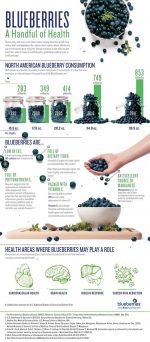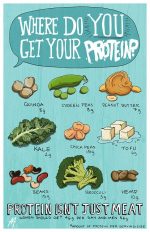(5).jpg)
http://fsphealthandfitness.co.za/dbimg/images/large%20(5)(5).jpg
Weight Loss And Alcohol
If you are trying to lose weight, you can boost your efforts by cutting back on alcoholic drinks. Alcohol can cause weight gain in a couple of ways. First, alcohol is high in calories. Some mixed drinks can contain as many calories as a meal, but without the nutrients. You also may make poor food choices with you drink.
While you do not have to cut out all alcohol if you are trying to lose weight, you may need to make some changes. You should watch the number, and type, of drinks you choose. You will also want to keep an eye on how drinking affects your eating habits.
Calories and Portions Count
So, how much can you drink if you are trying to lose weight? Health experts recommend that anyone who drinks does so in moderation. This means no more than 1 drink per day for women and no more than two 2 drinks per day for men. You may want to drink even less than that while dieting.
Keep in mind that alcohol has empty calories. This means it has a lot of calories, but few nutrients. So in order to drink alcohol while cutting back on calories, you need to plan it into your daily calorie count so you do not go over. Also remember that when you drink alcohol, you are replacing potentially healthy, and filling, food with calories that do not fill you up.
When choosing what to drink, you will want to choose your calories wisely. Here is a quick comparison of some common alcoholic drinks:
- Regular beer, about 150 calories for a 12-ounce glass
- Light beer, about 100 calories for a 12-ounce glass
- Wine, about 100 calories for a 5-ounce glass
- Distilled alcohol (gin, rum, vodka, whiskey), about 100 calories for a 1.5-ounce serving
- Martini (extra dry), about 140 calories for a 2.25-ounce glass
- Piña colada, about 490 calories in a 9-ounce glass
Pay attention to what else goes in your drink. Many mixed drinks include juices, simple syrup, or liqueur, which all add extra calories. These calories can add up quickly. Look for lower calorie options, such as a splash of juice and soda water. You may want to skip mixed drinks completely and stick with beer or wine.
Portion size is something else you should keep an eye on. Know what a standard drink looks like:
- 12 ounces of beer
- 5 ounces of wine
- 1.5 ounces (one shot) of hard liquor
The sizes of alcoholic drinks at a restaurant or bar are often larger than the standard amounts listed above. In some cases, one drink may actually have two or more servings of alcohol and calories. If you are served a drink that is larger than the standard size, skip a second drink. At home, use a jigger when mixing drinks, and serve them in smaller glasses. It will feel like youa re having more.
Eat Before you Drink
Drinking on an empty stomach will make you feel tipsy quicker. This can lead to eating or drinking more than you want to. Having some food before you drink will help your stomach absorb the alcohol more slowly and help you make better choices.
Studies show that people tend to make poor food choices when drinking alcohol. To avoid piling on the calories after a drink or two, have some healthy snacks ready to eat when you get home or make plans to have a healthy meal after your drink. Good snack choices include fruit, air-popped popcorn, or hummus and veggies. Turn your back on the nuts and pretzel mixes while you are at the bar. It is easy to gorge on bar snacks without realizing it.
Take it Slow
Just like eating too fast can lead to overeating, gulping down drinks may cause you to drink more than you would like. Sip your drink slowly, putting it down in between sips. When you are done, have a non-alcoholic drink, such as water or low-calorie soda, before having more alcohol.
Make a Plan for Drinking
The best way to control calories from drinking is to limit how much you drink. Before you go out, set a limit for yourself and stick with it. It is ok to turn down a drink you do not want or refuse a top-off on your wine glass. You can skip drinking altogether and volunteer to be the designated driver.
When to Call the Doctor
Call your health care provider if:
- You or someone you love is concerned about how much you drink
- You cannot control your drinking
- Your drinking is causing problems at home, work, or school
References
Breslow, R. et al. Alcoholic Beverage Consumption, Nutrient Intakes, and Diet Quality in the US Adult Population, 1999-2006. Am Diet Assoc. April 2010; 110(4): p 551-562. PMID: 20338281 www.ncbi.nlm.nih.gov/pubmed/20338281.
Centers for Disease Control and Prevention. Alcohol and Public Health: Frequently Asked Questions. July 9, 2015. www.cdc.gov/alcohol/faqs.htm. Accessed September 25, 2015.
French, M. et al. Alcohol Consumption and Body Weight. Health Econ. July 2010;19(7):p814-832. PMCID: PMC3082959www.ncbi.nlm.nih.gov/pmc/articles/PMC3082959.
National Institute on Alcohol Abuse and Alcoholism. Rethinking Drinking: Alcohol and Your Health. rethinkingdrinking.niaaa.nih.gov. Asked Questions. July 9, 2015.




